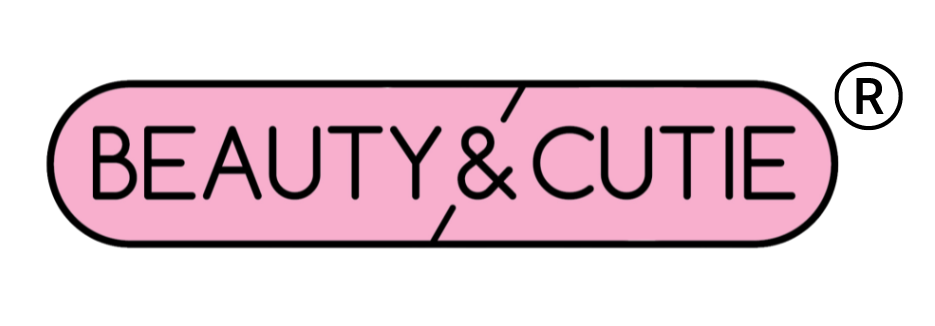Hair loss can be a distressing experience, especially for women who pride themselves on their luscious locks. While many factors can cause hair loss, stress is one of the leading causes. Prolonged stress can lead to hair loss, thinning, and breakage. However, it's possible to regain hair loss from stress, and in this article, we'll share some tips and tricks to help you get your hair back to its former glory. From diet and lifestyle changes to hair care routines, we'll cover all the bases to help you regain your confidence and get your hair looking and feeling healthy again.
What Is Stress?
Stress is a natural response to a perceived threat or danger, whether it's physical or emotional. When you experience stress, your body releases hormones such as cortisol and adrenaline, which can affect various bodily processes, including hair growth. Chronic stress can disrupt the natural hair growth cycle, leading to hair loss and thinning.
Why Does Stress Cause Hair Loss?
Stress can cause hair loss in a number of ways. It can disrupt the natural hair growth cycle, causing more hairs to enter the resting phase, which means they stop growing and eventually fall out. Secondly, stress can cause inflammation in the body, which can affect the hair follicles and disrupt their ability to produce healthy hair. Additionally, stress can also cause changes in hormone levels, which can affect the growth and health of the hair.
If you are experiencing hair loss due to stress, it's important to take steps to manage your stress levels. This can include things like exercise, meditation, and talking to a therapist. You may want to consider incorporating hair growth supplements into your diet, such as biotin or collagen.
Be gentle with your hair and avoid harsh treatments or styling techniques that can further damage the hair. With patience and dedication, you can regain your hair loss from stress and get back to feeling confident and beautiful.
Types Of Stress-Related Hair Loss
- Telogen Effluvium: This is a type of hair loss where more hairs than usual enter the resting phase of the hair growth cycle, causing increased shedding and thinning.
- Alopecia Areata: This is an autoimmune disorder where the body's immune system attacks the hair follicles, leading to patchy hair loss.
- Trichotillomania: This is a psychological condition where the individual has an irresistible urge to pull out their hair, leading to hair loss.
- Traction Alopecia: This is hair loss caused by repeated pulling or tension on the hair, often from tight hairstyles like braids or ponytails.
Signs and Symptoms Of Hair Loss From Stress
It's important to recognize the signs and symptoms of hair loss from stress so you can take action early on. Some common signs include increased shedding, thinning hair, and bald patches. You may also notice a change in the texture or quality of your hair, such as dryness, brittleness, or frizziness. It's important to note that stress-related hair loss can take several months to appear, and it may take time to see improvements even after addressing the underlying stress.
Tips and Tricks for Regaining Hair Loss from Stress
- Manage your stress levels through exercise, meditation, and therapy.
- Incorporate hair growth supplements like hair, skin, and nails vitamins or collagen into your diet.
- Be gentle with your hair and avoid harsh treatments or styling techniques.
- Recognize the different types of stress-related hair loss, such as telogen effluvium, alopecia areata, trichotillomania, and traction alopecia.
- Look out for signs and symptoms of hair loss from stress, including increased shedding, thinning hair, bald patches, and changes in texture or quality.
- Be patient and consistent in addressing the underlying stress to see improvements in hair growth.
- Choose a shampoo that is specifically designed for hair loss from stress. Look for ingredients like biotin, keratin, and caffeine, which can help to strengthen and nourish hair follicles.
Is There a Particular Diet That Can Help Reduce Hair Loss From Stress?
It is essential to consume enough vitamins and minerals that are necessary for hair growth, such as vitamin A, B vitamins, vitamin C, vitamin D, iron, zinc, and magnesium. These nutrients can be found in many foods, such as leafy greens, nuts, eggs, fish, and fruits.
It is important to maintain a diet that is low in processed foods and sugar. Consuming too much sugar and processed foods can lead to inflammation and hormone imbalances, which can contribute to hair loss. Instead, opt for whole foods, such as vegetables, fruits, whole grains, and lean proteins.
Additionally, consuming foods that are high in omega-3 fatty acids can also benefit hair health. Omega-3 fatty acids promote hair growth and can help reduce inflammation in the body. Foods high in omega-3s include fatty fish, such as salmon, chia seeds, and walnuts.
It is also important to stay hydrated by consuming enough water throughout the day. Water helps to keep the body hydrated and can improve hair health by promoting blood flow to the scalp.
What Is The Best Topical Treatment For Hair Loss?
There are several topical treatments available for hair loss from stress, including minoxidil (rogaine), corticosteroids, and anthralin. Minoxidil is a popular over-the-counter treatment that is applied directly to the scalp to stimulate hair growth. Corticosteroids can help to reduce inflammation in the scalp and promote hair growth in people with alopecia areata. Anthralin is a medication that is applied to the scalp to reduce inflammation and promote hair growth.
It is important to consult with a healthcare professional before using any topical treatment for hair loss, as they can recommend the best treatment based on your specific type of hair loss and medical history. Additionally, it may take several months of consistent use to see results from topical treatments.
Does Ashwagandha Help With Hair Loss?
Ashwagandha is an herb that has been used in ancient Ayurvedic medicine for centuries to reduce stress levels and promote overall health and wellness. While there is limited research on its direct effects on hair loss, some studies have suggested that ashwagandha can help reduce stress-related hair loss by lowering cortisol levels in the body. Cortisol is a hormone that is released in response to stress and can contribute to hair loss when levels are high.
In addition to reducing stress levels, ashwagandha has been shown to have anti-inflammatory and antioxidant properties, which can also benefit hair health. These properties can help reduce inflammation in the scalp and promote healthy hair growth. However, more research is needed to fully understand the effects of ashwagandha on hair loss. It is important to speak with a healthcare professional before taking any supplements, including ashwagandha, to ensure they are safe and effective for you.
Conclusion
Hair loss from stress can be a difficult experience to go through, but there are a variety of tips and tricks that can help you regain your hair health. Maintaining a healthy diet, practicing stress-reducing activities, and staying hydrated are all important steps to take in promoting hair growth. Additionally, topical treatments like minoxidil, corticosteroids, and anthralin can be effective in reducing inflammation and promoting hair growth.
If you're considering using any topical treatment, it's crucial to consult with a healthcare professional to determine the best treatment for your specific type of hair loss and medical history. And while ashwagandha has shown promising results in reducing stress-related hair loss, more research is needed to fully understand its effects on hair health. It's always important to speak with a healthcare professional before taking any supplements or making significant changes to your diet or lifestyle.
Final Thoughts
Discover the secret to looking and feeling amazing with Beauty and Cutie’s collagen powders! Packed with collagen peptides and amino acids, our formula nourishes your hair, skin, and nails from within. Strengthen cells for improved health and radiance, and embrace the confidence of a brighter, more vibrant you. Start your journey with Beauty and Cutie today!
- https://www.who.int/news-room/questions-and-answers/item/stress
- https://www.healthline.com/health/menopause/hair-loss
- https://my.clevelandclinic.org/health/diseases/24486-telogen-effluvium
- https://uihc.org/health-topics/traction-alopecia-type-hair-loss
- https://medlineplus.gov/druginfo/meds/a689003.html
- https://www.byrdie.com/ashwagandha-for-hair-loss-5080425
*These statements have not been evaluated by the Food and Drug Administration. This product is not intended to diagnose, treat, cure or prevent any diseases.


